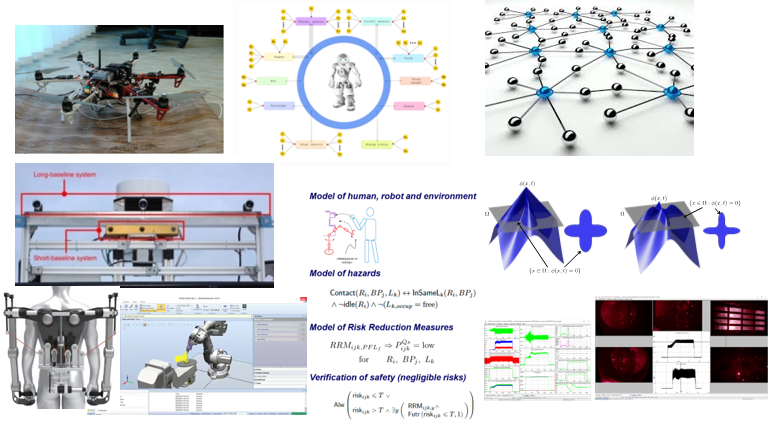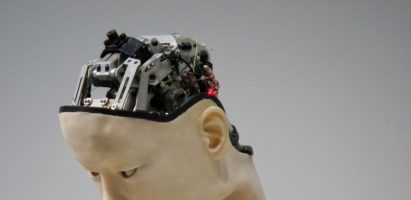Objective:
Recent and current research in Robotics at CNR is aimed to develop new robotic systems with decisional autonomy, able to operate in complex and highly uncertain environments, also cooperating with other robots and humans.
Research in Control Systems is aimed to study complex systems, possibly interconnected, nonlinear, and dependent on a large number of parameters, whose efficient management requires the design of control algorithms developed starting from data measured on the field.
Approach:
Robotics research activities are related to each of the key Technology Clusters defined by the MAR: system development (open source, standards, better systems and tools), safe human-robot interaction (better interaction), mechatronics (better machines), control strategies, perception, navigation and cognition (better action and awareness).
Research efforts in Control Systems are mainly devoted to the development of new approaches and algorithms to devise novel control systems that are characterized by fundamental properties, such as stability, accuracy, scalability, optimality, robustness, and reduced computational effort. The various activities can be catalogued in the following main fields: 1) control, estimation and optimization, 2) modeling and identification, 3) probabilistic methods and uncertain systems, 4) networks, 5) plasma structures.
Research efforts in Control Systems are mainly devoted to the development of new approaches and algorithms to devise novel control systems that are characterized by fundamental properties, such as stability, accuracy, scalability, optimality, robustness, and reduced computational effort. The various activities can be catalogued in the following main fields: 1) control, estimation and optimization, 2) modeling and identification, 3) probabilistic methods and uncertain systems, 4) networks, 5) plasma structures.
Scientific Impact/Results:
Scientific impact/results in the Robotics field include AI and innovative hardware solutions for wearable robotics and human-robot interaction, exoskeletons and bio-inspired cognitive architectures, open-ended learning, soft-robotics solutions, design and development of advanced perception systems, multi-robot systems, IoT-Robotics and communication networks.
Scientific impact/results in the field of Control Systems include the development of algorithms for large-scale, distributed, and decentralized systems, together with the study of novel applications fields aimed at increasing the well-being of humans, such as biomedicine, biology, and reduction of pollutant emissions.
Scientific impact/results in the field of Control Systems include the development of algorithms for large-scale, distributed, and decentralized systems, together with the study of novel applications fields aimed at increasing the well-being of humans, such as biomedicine, biology, and reduction of pollutant emissions.

Download:


